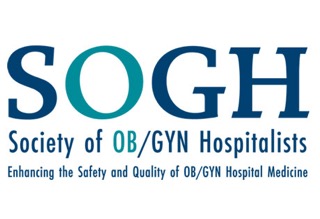Page 3 of 4
"CODE THIS!" (Case of the Month)The Review of Systems The Missing Link To Achieving The Elusive “Comprehensive” History” by Lori-Lynne A. Webb, CPC and Renée Allen, MD, MHSc., FACOGJanuary, 2018 Most OB Hospitalist practices have a template that covers the 12 body systems for the review of systems (ROS) and for the physical exam section within the Electronic Medical Records (EMR) system. The “Evaluation and Services Management” publication, created and revised in 2017 by the Centers for Medicare and Medicaid Services (CMS), does not state a required number of negatives per system necessary for documentation. Instead, the publication directs you to document all positive and pertinent negative responses in the ROS section of the H&P. According to this CMS guide; “A complete ROS inquires about the system(s) directly related to the problem(s) identified in the HPI plus all additional (minimum of ten) organ systems. Individual documentation is required of those systems with positive or pertinent negative responses. For the remaining Systems, a notation indicating all other systems are negative is permissible. However, in the absence of such a notation, you must individually document at least ten systems.” An important issue for OB Hospitalists is, how many systems were reviewed and what level of acuity does our documentation support? Below are the systems that make up the ROS. To achieve a “complete” or “comprehensive” ROS review, at least ten (10) of these systems need clear documentation within the medical record for that specific encounter. Take note that there are 14 body systems listed. Thus, 10 of the 14 must be documented to qualify for a “comprehensive” ROS.
The ROS is a critical component of our documentation. Given the focused nature of many of our patient encounters in a triage or OBED, we likely aren’t going to be assessing very many systems. The complexity of our encounters are often determined by our medical decision making. Usage of statements such as “ROS negative” or “negative other than in the HPI” is unacceptable and does not support the required documentation for a ROS when documenting the history portion of the encounter. While it is acceptable to use verbiage in the documentation such as, “all body systems were reviewed and are negative.” If you employ this statement in your clinical documentation, make sure you are indeed performing a 10-plus system review and that the review is pertinent to the patient’s chief complaint and HPI. Querying systems that have no relevance to the HPI is not considered appropriate practice. If you are currently using statements such as “ROS negative” or “negative other than in the HPI”, such statements only cover those systems described in your HPI and are not adequate documentation of 10 systems. CMS notes in their recommendations for documentation of the patients’ history additional useful tips on the proper Documentation of History (click here)
- Describing any new ROS and/or PFSH information or noting there is no change in the information
- Noting the date and location of the earlier ROS and/or PFSH
Example of proper ROS “comprehensive” documentation with a List by Body System for a Laboring Patient REVIEW OF SYSTEMS: Example of proper ROS “comprehensive” documentation with a Statement for a Patient with Persistent UTI: REVIEW OF SYSTEMS: 10 body systems reviewed and are negative, except the patient still reports dysuria and polyuria. The patient has a recent diagnosis of UTI and has not yet completed her antibiotic regimen with Macrobid. Dr. Renée Allen served co-author of this column. She is the SOGH Liaison to the ACOG Committee on Health Economics and Coding and Co-Chair of the Development Committee. She currently works as an OB/GYN Hospitalist with Mednax/Obstetrix at Eastside Medical Center in Snellville, Georgia. Questions regarding this case? Contact us at [email protected] |

